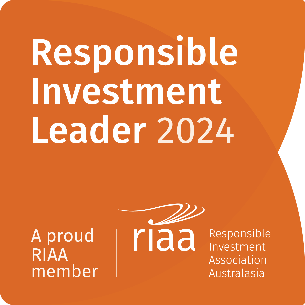No real political will to tackle the housing crisis

The only sensible conclusion an observer can come to is that there is no real political will to address the Auckland housing crisis. While a number of serious solutions are self-evident, the level of the debate is bogged down in headline grabbing but relatively ineffective proposals like registration and a potential land tax on foreigners. Foreign property taxes have been relatively ineffective in other countries including Singapore which has a 15% stamp duty payable by foreign purchasers.
The term crisis applies quite correctly to the housing situation. Stratospheric house price appreciation, particularly in Auckland, has all the hallmarks of a financial bubble which will at some point collapse. Although many of us may enjoy the apparent wealth effect of ever increasing house prices, there are two main areas of concern.
• The first is that when prices do adjust they might inflict significant damage on the banking system.
• The second area of concern is to do with social cohesion and equality. It is commonly accepted that high rates of home ownership are desirable for a stable and prosperous society. Home ownership has morphed from providing a stable environment in which to house families to an investment framework which most closely resembles a leveraged Ponzi scheme.The amount of bank debt lent against NZ houses has doubled over the last decade and now represents over half of all bank lending. When measured against household income, Auckland houses are now amongst the most expensive in the world, are valued at over twice their long run average and have recently surpassed Sydney.
Economically there are two ways to address the housing crisis which can both play an important role. The first relates to the supply of property and much has been written about the Government and Auckland Council's bungled attempts to tackle intensification or the release of additional land. The supply side issues are complicated by the poor state of Auckland's physical infrastructure, particularly roading, and lack of effective public transport.
The second approach is to look at the demand side for housing and this is where the lack of political will is most apparent. Let's explore some options:
• Taxation. A staggering 45% of houses are now being bought by investors. Latest figures show that in some lower cost Auckland suburbs that over 80% of homes are being bought by property speculators. In many ways this is not surprising as investors or speculators enjoy clear tax advantages over owner-buyers or renters. Speculators can negatively gear, whereby they borrow heavily and structure their purchase so that they receive less income from the property than they have in outgoings.
That's fine. What is not fine is that these losses can be offset against other income to reduce their overall tax bill. So perversely investors in housing can wind up contributing less to much needed infrastructure, such as roads, schools and hospitals, than renters or owner occupiers. Additionally after enjoying the tax deductible benefits of negative gearing investors do not pay any capital gains when properties are finally sold.
What other reason can you have for investing in a negatively geared property than reaping capital gains? Why is it that mortgage interest is tax deductible for speculators but not for owners, and that rent is not tax deductible. Clearly this taxation framework skews the market in favour of investors.
• Limiting the pool of purchasers. We have no clear figures as yet on the level of purchases by overseas investors over the last few years but using overseas studies and anecdotal evidence it may be as high as 15% in Auckland. New foreign ownership data due in two weeks may not shed much light as it's only been in place for a very short time period. Should we not simply make residency or citizenship a requirement to buy existing homes if we agree that it is desirable for New Zealanders to be able to afford homes? New homes could be exempt from this policy as they are in Australia.
• Prudent lending restrictions. The Reserve Bank has started to move down this path with the requirement that investors in Auckland property have a 30% deposit. In China the Central Bank has gone much further and requires investors to post larger deposits as they own more properties. By the time you buy your 4th property in China it must be 100% cash funded. This is an effort to preventing the housing market becoming a Ponzi scheme whereby the "on paper" increase in a property's value is simply leveraged up to purchase additional properties.
This was highlighted to me recently when providing some advice to a friend who has a very low and variable income yet who has accumulated over $1m in debt over the last 12 months by buying 3 properties which are leveraged against each other. This sort of lending is simply insane and a clear risk to the banking sector.
• Banks should be required to hold more capital against residential lending. This is a technical area but banks only hold just over $3 of equity for every $100 of loans they make against housing. During the GFC we saw in other countries that this was inadequate and taxpayers had to bail banks out in the US, UK, Ireland and much of Europe.
• Putting a short term brake on immigration. Auckland's infrastructure is failing to keep up with population growth, as clearly evidenced by congestion on our roads. Record immigration flows are putting additional pressure on the housing market. With over 130,000 New Zealanders unemployed and low real wage growth should we slow down immigration flows until our infrastructure and home building catches up?
That these steps are not being seriously considered highlights the lack of real political will in tackling the housing crisis.
- Paul Glass - Principal at Devon
Click here for the original article






